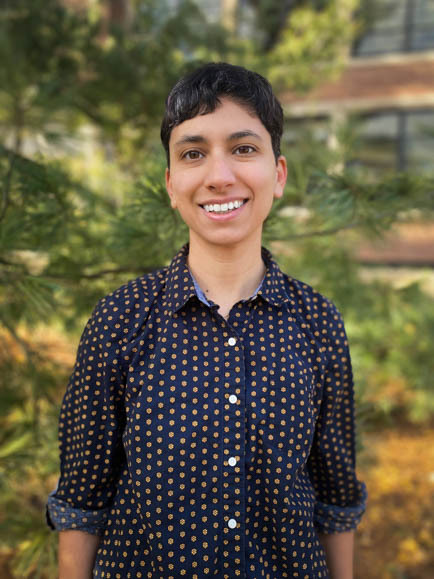Psychology student Megan Mikhail receives Social Science Graduate Student Researcher Award
December 20, 2022 - Emily Jodway
 Megan Mikhail, a graduate student in the Department of Psychology, was awarded the 2022 College of Social Science Graduate Student Researcher Award for her research on eating disorders and disadvantaged populations.
Megan Mikhail, a graduate student in the Department of Psychology, was awarded the 2022 College of Social Science Graduate Student Researcher Award for her research on eating disorders and disadvantaged populations.
The award recognizes a Social Science graduate student whose work demonstrates a clear potential for continued research and incorporates emerging scholarly perspectives or interdisciplinary approaches.
“I am incredibly honored and excited to be honored with this award,” Mikhail said. “My work on eating disorders in underserved populations is deeply important to me because it is rooted in my own experience as a person with an eating disorder who did not see myself in existing research or treatment, and it is amazing to have it recognized.”
Mikhail’s research examines the links between those from socioeconomically disadvantaged backgrounds and the development of eating disorders. Her newest work, “Understanding Associations between Disadvantage and Disordered Eating Across Development and Levels of Analysis,” was the first of its kind to take multiple risk factors into account, from familial and societal disadvantages to potential genetic influences. Her findings uncovered a stronger and earlier expression of these genetic influences in girls from disadvantaged backgrounds and led to further work that had similar results when examined with boys.
“Megan’s work is revising long-standing theories and substantially increasing awareness of the critical need for increased access to treatment and prevention for those from disadvantaged contexts,” said Kelly Klump, Megan’s advisor and a professor in the Department of Psychology. “She is doing exceptional work and I feel very fortunate to be her advisor!”
Mikhail has had her work previously recognized in the Journal of Psychopathology and Clinical Science as well as the International Journal of Eating Disorders. She was also recently named an Editorial Board Member of The International Journal of Eating Disorders, an honor usually reserved for those already graduated and working in the field of psychology and eating disorder research.
Mikhail’s research has repeatedly shown that those from disadvantaged backgrounds are at an increased risk of developing eating disorders, while also being the least likely group to have access to treatment. Her work has the potential to greatly expand the realm of understanding of how and why various risk factors may be associated with disordered eating across one’s lifespan. She hopes that this will lead to increased access to treatment and preventative care for those in historically underserved populations.

